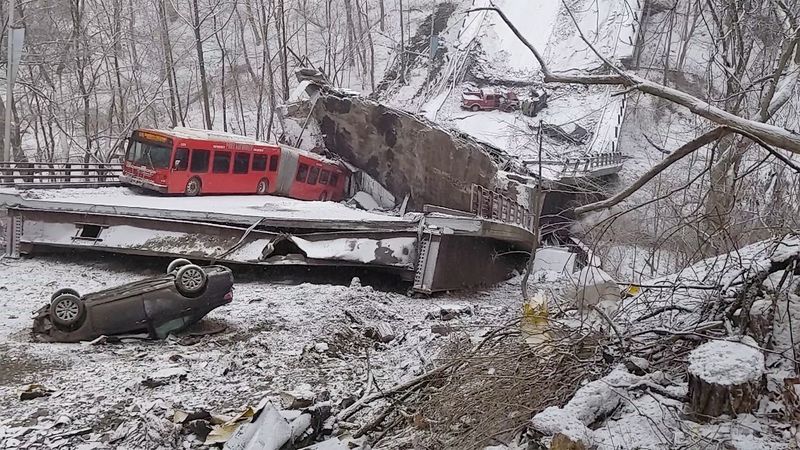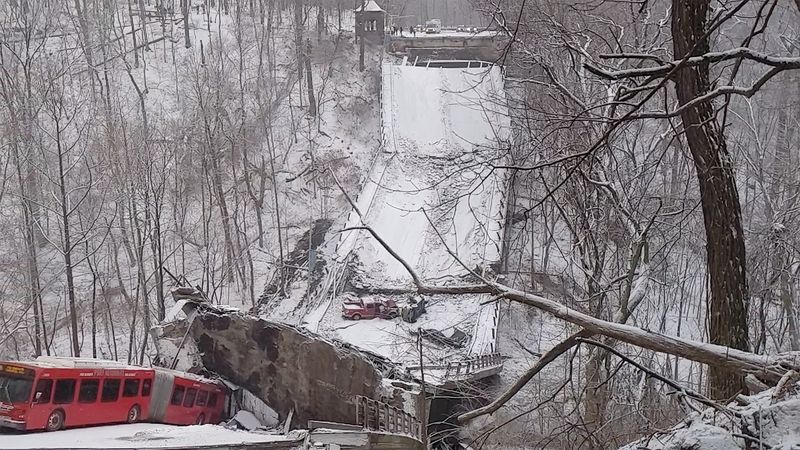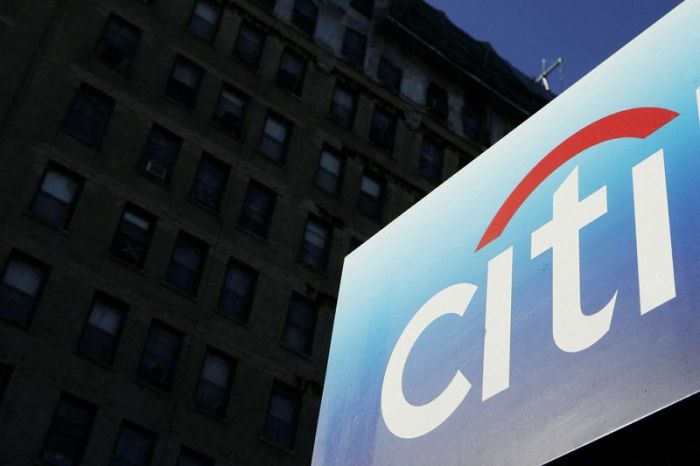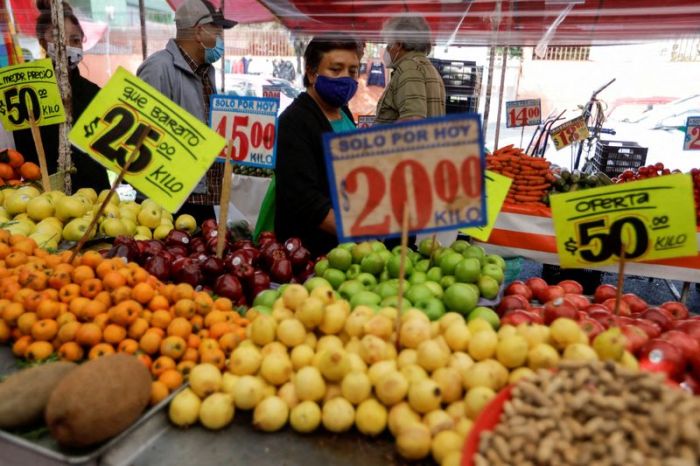(Reuters) – The half-century-old bridge that collapsed in Pittsburgh on Friday ahead of President Joe Biden’s visit highlighted the perilous state of much of the United States’ transportation infrastructure, which is due to get a trillion-dollar infusion over the coming years.
Like nearly 44,000 other spans nationwide, the Fern Hollow Bridge in Pittsburgh is rated in poor condition, according to the U.S. Department of Transportation’s 2021 national inventory.
Ten people sustained minor injuries when the snow-covered span collapsed into a wooded gully around 6 a.m. (1100 GMT), authorities said. Several nearby homes were temporarily evacuated after a massive natural gas leak caused by the collapse, which was brought under control.
Built in 1970, the four-lane bridge carries an average of 14,500 vehicles per day along Forbes Avenue, one of the city’s main arteries, according to Transportation Department data.
It is one of 31 bridges in the city rated in poor condition.
“We’re going to fix them all,” Biden said on a visit to the collapse site.
Pittsburgh City Council member Corey O’Connor said the damage could have been worse. “If it was rush hour, we would be looking at a couple hundred cars down in that valley,” he told CNN.
A “poor” rating does not necessarily mean a bridge is at risk of collapsing, according to the American Society of Civil Engineers, but it does mean they should be inspected regularly. The collapsed bridge was inspected last September, the city’s fire chief told reporters.
Biden’s $1 trillion infrastructure spending package, the largest such investment in decades, is already providing billions of dollars for upgrades to bridges, roads and transit.
REPAIR DOLLARS FLOW TO PENNSYLVANIA
The Transportation Department announced earlier this month that it was distributing $5.3 billion to states for bridge repair, a dramatic increase over previous years.
Pennsylvania got the third-largest share, a total of $327 million. The state is a political battleground and played a key role in Biden’s 2020 presidential victory. All 10 of the state’s Democratic lawmakers in the Senate and the U.S. House of Representatives voted for the infrastructure package, and nine out of Pennsylvania’s 10 Republicans voted against it.
The money will come in handy.
Roughly 11% of the Northeastern state’s 30,000 bridges are in poor condition, according to the national inventory, nearly twice the national average. Those bridges handle 5% of daily traffic in Pennsylvania.
The state’s bridges were given a grade of D-plus by the civil engineering society in a 2018 report. Its roads and sewer, water, and transit systems also received low marks.
The society said the state had made progress since approving a fuel-tax hike in 2013 to fund repairs. The group praised Pennsylvania’s bridge-inspection program, which it said exceeded federal standards.
Pittsburgh, a hilly city of about 300,000 people located at the confluence of three major rivers, has 732 bridges within city limits, which Biden said was more than any other city in the world. Roughly 4% of them are in poor condition.
City officials have pressed the Transportation Department to make it easier to lower speed limits and improve pedestrian safety.
Karina Ricks, the city’s former transportation director, took a senior job last year with the Federal Transit Administration.
(Editing by Jonathan Oatis)

























